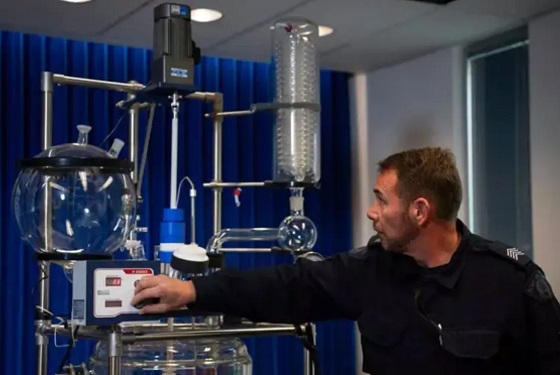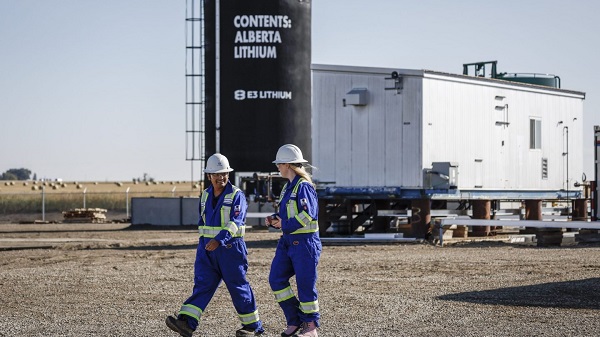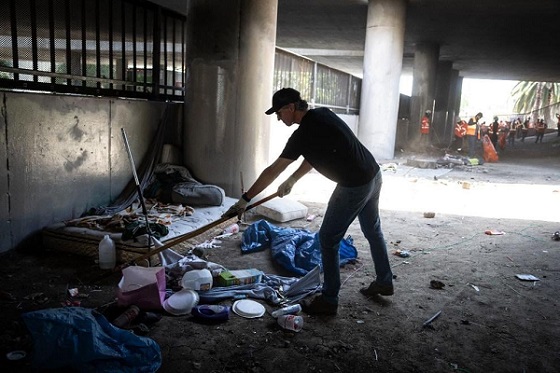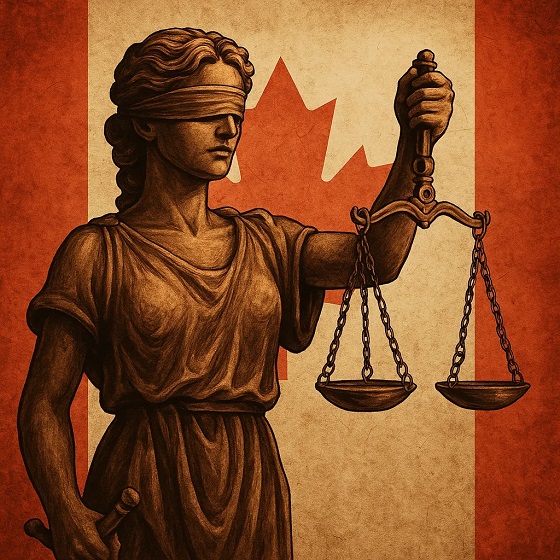Business
Farage’s Reform UK party launches DOGE style audit
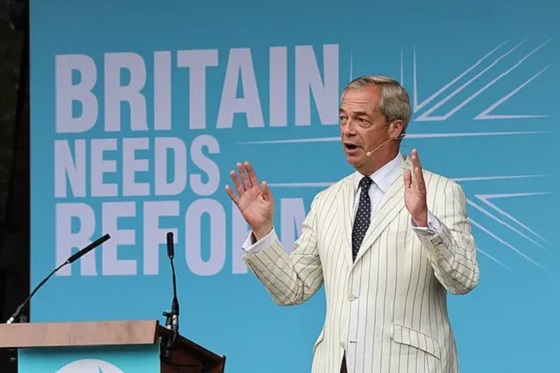
Quick Hit:
Reform UK has launched a DOGE-inspired audit to root out waste and overspending in councils it now controls. The party promises to save taxpayers money through aggressive forensic reviews and tech-driven accountability.
Key Details:
- Reform’s tech task force will audit spending across 10 local councils, beginning in Kent.
- The project is modeled on Elon Musk’s DOGE initiative, which Reform cites as saving $170 billion in the U.S.
- Local officials warn resistance to transparency will be treated as gross misconduct.
Diving Deeper:
Nigel Farage’s Reform UK has moved quickly to deliver on its pledge to clean up government waste by launching a sweeping audit of the 10 councils it won control of in May’s local elections. On Monday, the party deployed a team of data analysts, forensic auditors, and software engineers to begin a full investigation into spending practices—starting with the council in Kent.
The initiative is inspired by Trump’s Department of Government Efficiency, which officials say has saved American taxpayers over $170 billion. Reform’s British equivalent—also dubbed “DOGE”—will dig through financial records, contracts, audits, and whistleblower reports to identify waste and inefficiencies in local governance.
“For too long, British taxpayers have watched their money vanish into a black hole,” said Reform UK’s chairman in a statement to The Telegraph. “As promised, we have created a UK Doge to identify and cut wasteful spending of taxpayer money. Our team will use cutting-edge technology and deliver real value for voters.”
Linden Kemkaran, Reform’s new council leader in Kent, is leading the charge. In a letter to council CEO Amanda Beer, she demanded access to all financial records, including vendor agreements, audit issues from the last three years, and any relevant internal investigations. She warned that refusal to cooperate would trigger a formal council vote to compel compliance and could result in misconduct charges.
“This review is part of Reform’s commitment to transparency, accountability, the prudent management of public funds and the highest standards in public life,” said Kemkaran, who emphasized that scrutinizing council budgets was a cornerstone of the party’s local platform.
The move is also part of Farage’s national strategy. He’s pivoting Reform UK into a party for the working class—promising to scrap the two-child benefit cap, offer transferable tax breaks for married couples, and eliminate income tax for those earning under £20,000. To fund these proposals, Farage has pledged to dismantle what he calls “radical green Net Zero schemes,” slash diversity and asylum spending, and reduce the number of government quangos—measures he says could save £350 billion.
Automotive
Governments continue to support irrational ‘electric vehicle’ policies
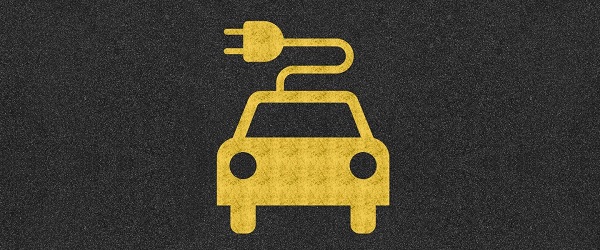
From the Fraser Institute
Another day, another electric vehicle (EV) fantasy failure. The Quebec government is “pulling the plug” on its relationship with the Northvolt EV battery company (which is now bankrupt), and will try to recoup some of its $270 million loss on the project. Quebec’s “investment” was in support of a planned $7 billion “megaproject” battery manufacturing facility on Montreal’s South Shore. (As an aside, what normal people would call gambling with taxpayer money, governments call “investments.” But that’s another story.)
Anyway, for those who have not followed this latest EV-burn out, back in September 2023, the Legault government announced plans to “invest” $510 million in the project, which was to be located in Saint-Basile-le-Grand and McMasterville. The government subsequently granted Northvolt a $240 million loan guarantee to buy the land for the plant, then injected another $270 million directly into Northvolt. According to the Financial Post, “Quebec has lost $270 million on its equity investment… but still had a senior secured loan tied to the land acquired to build the plant, which totals nearly $260 million with interest and fees.” In other words, Quebec taxpayers lost big.
But Northvolt is just the latest in a litany of failure by Canadian governments and their dreams of an EV future free of dreaded fossil fuels. I know, politicians say that it’s a battle against climate change, but that’s silly. Canada is such a small emitter of greenhouse gases that nothing it could do, including shutting down the entire national economy, would significantly alter the trajectory of the climate. Anything Canada might achieve would be cancelled out by economic growth in China in a matter of weeks.
So back to the litany of failed or failing EV-dream projects. To date (from about 2020) it goes like this: Ford (2024), Umicore battery (2024), Honda (2025),General Motors CAMI (2025), Lion Electric (2025), Northvolt (2025). And this does not count projects still limping along after major setbacks such as Stellantis and Volkswagen.
One has to wonder how many tombstones of dead EV fantasy projects will be needed before Canada’s climate-obsessed governments get a clue: people are not playing. Car buyers are not snapping up these vehicles as government predicted; the technologies and manufacturing ability are not showing up as government predicted; declining cost curves are not showing up as government predicted; taxpayer-subsidized projects keep dying; the U.S. market for Canada’s EV tech that government predicted has been Trumped out of existence (e.g. the Trump administration has scrapped EV mandates and federal subsidies for EV purchases); and government is taking the money for all these failed predictions from Canadian workers who can’t afford EVs. It really is a policy travesty.
And yet, like a bad dream, Canada’s governments (including the Carney government) are still backing an irrational policy to force EVs into the marketplace. For example, Ottawa stills mandates that all new light-duty vehicle sales be EVs by 2035. This despite Canadian automakers earnest pleas for the government to scrap the mandate.
Canada’s EV policy is quickly coming to resemble something out of dysfunctional-heroic fiction. We are the Don Quixotes, tilting futilely at EV windmills, and Captain Ahabs, trying to slay the dreaded white whale of fossil-fuelled transportation with our EV harpoons. Really, isn’t it time governments took a look at reality and cut their losses? Canada’s taxpayers would surely appreciate the break.
Business
Call for Federal Inquiry as Pressure Mounts for Release of Buried Report on Buddhist Land Transactions in PEI

The Great Enlightenment Buddhist Institute Society
The authors of a new book, Canada Under Siege, allege that a religious group linked to the Chinese Communist Party has been involved in a pattern of suspicious land transactions across Prince Edward Island — Canada’s smallest province, which they say is increasingly a flashpoint for questions about national security, land control, and transparency.
The authors — former RCMP superintendent Garry Clement and publisher Dean Baxendale — are pressing for the release of an investigative report they believe was suppressed, and for a new provincial probe commissioned this year to show concrete progress.
As scrutiny from the authors and from media including CBC and The Bureau has increased this year, the long-sought 2018 land-investigation report at the centre of the controversy — prepared by the Island Regulatory and Appeals Commission (IRAC) — may finally surface, after a legislative standing committee issued a subpoena for the document. The report, which examined land holdings on Prince Edward Island, including those of several Buddhist-affiliated entities, was never released publicly by the regulatory body.

The authors, along with a group of concerned PEI citizens were joined in Ottawa yesterday by Wayne Easter, a retired nine-term Liberal MP and former chair of the House Finance Committee. Easter requested a judicial inquiry into suspected corruption tied to land transactions, saying he is among many Prince Edward Islanders alarmed by suspicious dealings involving the Buddhist groups. (The author of this story also spoke at the press conference on PEI investigations and foreign interference.)
Easter stressed that critics do not believe the Buddhist followers who have come to live and work in the communities established by the China-linked organization are engaged in wrongdoing. Rather, he warned that clandestine actors may have infiltrated and exploited the group’s land holdings for undisclosed purposes.
“You need a federal public inquiry that can subpoena witnesses, trace bank accounts,” Easter said.
In response to a CBC report linking the religious group to Chinese Communist Party entities, representatives of the organizations involved strongly denied the allegation, stating that their activities have no political connection to the CCP.
Clement and Baxendale called for a federal inquiry into what they described as land dealings consistent with money laundering, routed through shell companies and religious non-profits.
Adding to those calls, Jan Matejcek, a PEI-based lawyer who has conducted his own investigations with a group of concerned Island residents, says the provincial government’s apparent reluctance to release a prior report into the land dealings of the Great Enlightenment Buddhist Institute Society, conducted from 2015 to 2018, “raises some doubt about this government’s commitment to transparency.”
Documents reviewed by The Bureau show that the decade-old investigation, authorized under section 15 of PEI’s Lands Protection Act, examined land holdings of several Buddhist-affiliated corporations — including the Great Enlightenment Buddhist Institute Society, Great Wisdom Buddhist Institute Inc., Moonlight International Foundation, and related companies — before being declared concluded in January 2018. No findings were ever made public.
A November 2024 letter from Housing Minister Steven Myers, obtained by The Bureau, and addressed to IRAC CEO Doug Clow, is titled “Re: Great Wisdom Buddhist Institute Inc. and Great Enlightenment Buddhist Institute Society.”
In the letter, Myers wrote:
“I am writing to request that the Commission provide an update on the 2018 land investigation file relating to the above-noted organizations. Given the public interest and recent inquiries from legislators, I ask that the Commission provide a summary of its findings and the status of any recommendations or follow-up actions.”
That earlier investigation is now under renewed scrutiny following a February 2025 directive from Myers ordering IRAC to reopen the case under new powers added to the Lands Protection Act in 2022. The minister cited “public interest” and the need to examine potential direct or indirect control of the corporations’ land holdings, requesting a full report on whether the organizations had contravened the Act or its regulations.
This scrutiny follows mounting concern among residents and lawmakers that PEI’s land protections — designed to prevent excessive concentration of farmland — have been undermined by complex corporate structures and opaque beneficial-ownership chains.
The Bureau is a reader-supported publication.
To receive new posts and support my work, consider becoming a free or paid subscriber.
-

 Energy21 hours ago
Energy21 hours agoUS oil production reached record-high 13.6 million barrels a day in July
-

 Alberta2 days ago
Alberta2 days agoSheriffs shut down Olds drug house
-
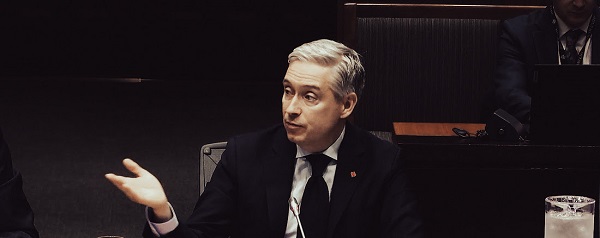
 Business1 day ago
Business1 day agoFinance Minister ducks deficit questions, talks down to critics, and rebrands reckless spending as ‘transparency’.
-
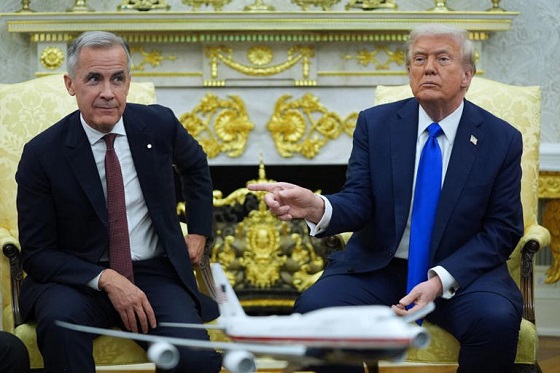
 Business2 days ago
Business2 days agoTrump and Carney full of warm compliments but still no trade deal between Canada and U.S.
-

 Haultain Research1 day ago
Haultain Research1 day agoInclusion and Disorder: Unlearned Lessons from Palestinian Protests
-

 COVID-191 day ago
COVID-191 day agoDevastating COVID-19 Vaccine Side Effect Confirmed by New Data: Study
-

 Business1 day ago
Business1 day agoCanada Post is failing Canadians—time to privatize it
-

 Business1 day ago
Business1 day agoGovernment distorts financial picture with definition of capital





